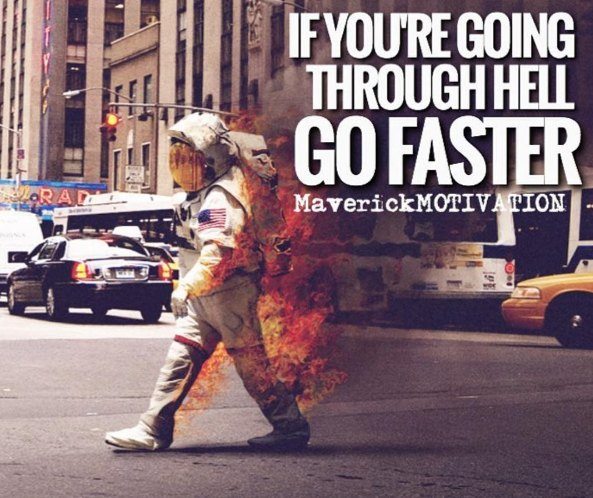Success Advice
What I Haven’t Done In My Younger Years That Society Tells Me I Should

A day doesn’t seem to fart on by without someone telling me that I should have done X when I was younger. It’s like if you haven’t done such and such by a certain age, you are a retard with no friends.
I question everything that society says we should do and you should too. Learn to ask why!
When you ask why you realize that many of the things society values are total crap. Most people can’t tell you why they do stuff which is a worry in itself.
The reason we value the below list I’m about to talk about is because that’s what we’ve always done. It may have made sense fifty years ago when we didn’t know what we know now, but it makes bugger all sense in the 21st Century.
So here’s what I haven’t done:
Got married
I haven’t found the right woman yet. Marrying the first girl or guy who’s nice to you because society says you have to is BS.
Do it when you find the right person or don’t do it at all. Divorce is expensive and I couldn’t be stuffed with the drama of seeing my life fall to pieces around me because I didn’t wait for the right partner.
Had kids
See point one. I’m not married and last time I checked you needed a woman to have sex and create babies. But hey, I could be wrong with all this cutting edge science shit. Maybe you think about sex these days and get a woman pregnant.
Doesn’t sound like the way I’d do it but hey, whatever floats your boat, right?
Kids will happen when you are ready for them to happen – assuming you use protection everybody.
Bought a luxury car
Okay, so I lied. I have kind of done this one although I stopped this habit a long time ago.
Almost every investment book you’ve ever read says don’t buy a luxury car. I’ve had high-end cars and normal cars.
“The normal car I drive now still kicks ass but it doesn’t bleed me dry like the nurse does when I have a blood test”
 Actually, my normal car feels better than any luxury car I’ve ever had. Who gives a rats ass what car you drive. Is anyone really fooled by all these luxury cars? Does society really not understand the car depreciates, costs a bucket load to service and doesn’t make your penis or breasts larger?
Actually, my normal car feels better than any luxury car I’ve ever had. Who gives a rats ass what car you drive. Is anyone really fooled by all these luxury cars? Does society really not understand the car depreciates, costs a bucket load to service and doesn’t make your penis or breasts larger?
Also, do you not realize that none of these snobs driving these cars actually own the car? The bank or finance company owns the car.
The poor driver can barely afford to get out of the car and into Starbucks to buy a Grande Frappucino. As a side note, I’ve never been into Starbucks so not sure if that’s on the menu. I’m sure the coffee is just swell.
Bought a house
I’m not convinced a house is an absolute must. I’d rather see our younger generation become entrepreneurs and create a business that can feed them for life. A house can come when you have a family or have the money.
“Traveling the world without the hassle of a house when you’re young feels like wearing pants with no underwear – you feel free in other words”
Free like a freaking bird in the sky (I borrowed that line from some techno song called Beachball). I’m still not quite sure how bricks, cement, a bit of timber and a garage with a remote control door is supposed to completely change my life and make me happy as freaking Larry. Please explain society.
Done a trip around Europe
 I’ll get to it when I can be assed. The planet’s not going anywhere unless you believe in superstition. I know I haven’t posted a bunch of photos of me at the Leaning Tower Of Pisa, in my Ray Bans, with my hot girlfriend who’s covered in perfect makeup as if the photo was taken off the cuff without preparation.
I’ll get to it when I can be assed. The planet’s not going anywhere unless you believe in superstition. I know I haven’t posted a bunch of photos of me at the Leaning Tower Of Pisa, in my Ray Bans, with my hot girlfriend who’s covered in perfect makeup as if the photo was taken off the cuff without preparation.
All these Europe photos on your social media accounts don’t make you smarter. You’re not cooler because you have been there and I haven’t. Travel is something you do when you feel like it. We all have breaks in our career and in my experience, that’s the best time to travel.
Like the time I started a business with my brother, nearly lost my mind and quit. That’s a great time to take a long ass vacation to somewhere like Europe and show your pals how freaking good you are. Having said that, make sure you travel at some stage during your life. It will change your reality.
Got an MBA (Masters Of Business Administration)
There are lots of peeps dropping the word “MBA” these days. For starters, it’s an acronym so that automatically makes you dumb. Secondly, the name of the university means jack shit to me.
“All that I care about is whether you know how to add value to this world in your own unique way. I have zero business education and I’d still outsell your ass, outwork your ass and out hustle your ass when it come’s to doing a startup. Business has nothing to do with having an MBA”
It’s nice to have, but not essential by any means. If you really need some lame ass letters after your name to sound cool, then you got bigger problems which I can’t help you with. The moment you need an MBA to validate your worth is the moment you start to live a mediocre life.
 Most of what I learned about business was done on the job. It went like this: Start. Fail. Start Fail. You get my drift. It happened like this multiple times and it still happens like this today. Every failure is ten times more powerful than an MBA especially when there is a shit ton of cash involved.
Most of what I learned about business was done on the job. It went like this: Start. Fail. Start Fail. You get my drift. It happened like this multiple times and it still happens like this today. Every failure is ten times more powerful than an MBA especially when there is a shit ton of cash involved.
There’s nothing like learning when you have your own money at stake. Not to mention, the money you need for an MBA would help me start at least three online businesses. Something to think about.
Oh, and no I’m not against university, so you don’t need to send me angry emails at 3 am in the morning when I’m trying to get my beauty sleep from writing you all of this crazy hot advice that changes your life and stuff.
Here’s what society should value instead:
 – Your individuality and quirkiness
– Your individuality and quirkiness
– Where you came from
– Love
– Happiness
– Personal growth
– Fitness
– Energy
– Passion
– Health
– Entrepreneurship (i.e., changing the world)
Now is that list long enough for ya? These are the elements of a kick ass life and this is what society should value. It’s these things ladies and gentlemen that will make your entire life worth it.
Have I missed something? Would someone please explain all of this MBA stuff to me? Will the Real Slim Shady please stand up?
If you want to increase your productivity and learn some more valuable life hacks, then join my private mailing list on timdenning.net
Business
If Your Business Internet Keeps Letting You Down, Read This
From smoother operations to better security, dedicated internet access is quietly powering today’s high-performing businesses.

Today, a dependable internet service is the bedrock for uninterrupted business operations. Many organizations rely on stable online connections for communication, data transfer, and customer interaction. (more…)
Did You Know
How Skilled Migrants Are Building Successful Careers After Moving Countries
Behind every successful skilled migrant career is a mix of resilience, strategy, and navigating systems built for locals.

Moving to a new country for work is exciting, but it can also be unnerving. Skilled migrants leave behind familiar systems, networks, and support to pursue better job opportunities and a better future for their families. (more…)
Life
10 Research-Backed Steps to Create Real Change This New Year
This New Year could finally be the one where you break old patterns and create real, lasting change.

Every New Year, we make plans and set goals, but often repeat old patterns. (more…)
Change Your Mindset
The Silent Skill That Makes People Respect You Instantly
What truly earns respect and why most people go about it the wrong way

Everybody craves respect but not everyone earns it. Some people believe that a title, years of experience, or a position of authority automatically entitles them to respect. (more…)
-

 Health & Fitness2 weeks ago
Health & Fitness2 weeks agoWhat Minimalism Actually Means for Your Wellness Choices
-

 Did You Know1 week ago
Did You Know1 week agoWhy Most Online Courses Fail and How to Fix Them
-

 News6 days ago
News6 days agoBrandon Willington Builds 7-Figure Business by Ignoring Almost Everything
-

 Business1 week ago
Business1 week agoIf Your Business Internet Keeps Letting You Down, Read This

























